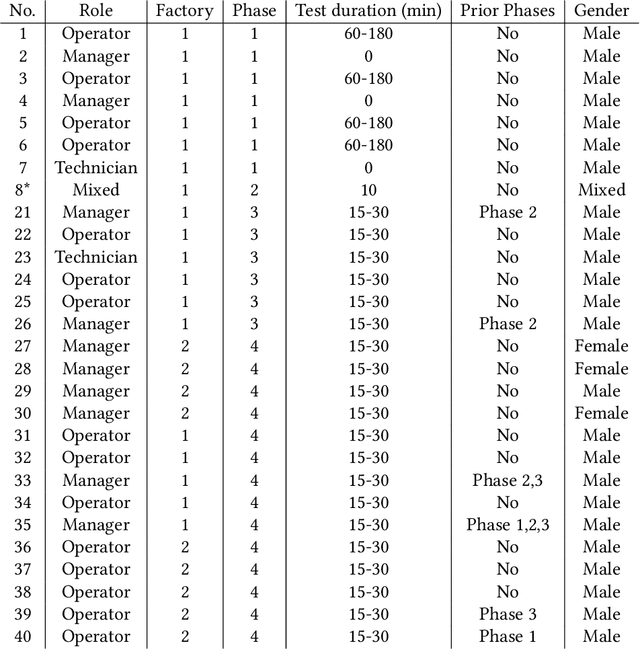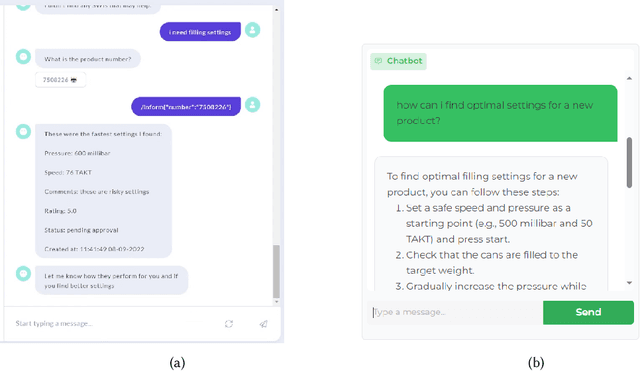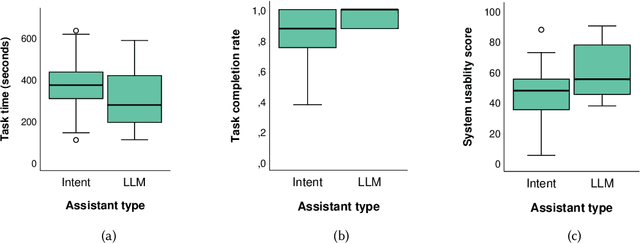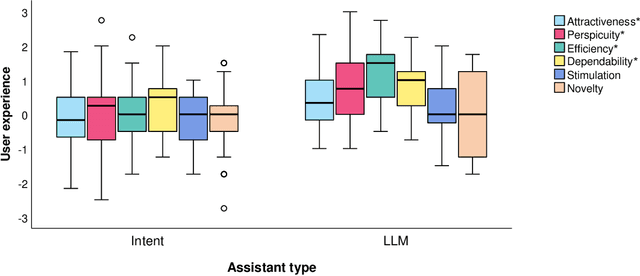Samuel Kernan Freire
Understanding Mental Models of Generative Conversational Search and The Effect of Interface Transparency
Jun 04, 2025



Abstract:The experience and adoption of conversational search is tied to the accuracy and completeness of users' mental models -- their internal frameworks for understanding and predicting system behaviour. Thus, understanding these models can reveal areas for design interventions. Transparency is one such intervention which can improve system interpretability and enable mental model alignment. While past research has explored mental models of search engines, those of generative conversational search remain underexplored, even while the popularity of these systems soars. To address this, we conducted a study with 16 participants, who performed 4 search tasks using 4 conversational interfaces of varying transparency levels. Our analysis revealed that most user mental models were too abstract to support users in explaining individual search instances. These results suggest that 1) mental models may pose a barrier to appropriate trust in conversational search, and 2) hybrid web-conversational search is a promising novel direction for future search interface design.
Factory Operators' Perspectives on Cognitive Assistants for Knowledge Sharing: Challenges, Risks, and Impact on Work
Sep 30, 2024



Abstract:In the shift towards human-centered manufacturing, our two-year longitudinal study investigates the real-world impact of deploying Cognitive Assistants (CAs) in factories. The CAs were designed to facilitate knowledge sharing among factory operators. Our investigation focused on smartphone-based voice assistants and LLM-powered chatbots, examining their usability and utility in a real-world factory setting. Based on the qualitative feedback we collected during the deployments of CAs at the factories, we conducted a thematic analysis to investigate the perceptions, challenges, and overall impact on workflow and knowledge sharing. Our results indicate that while CAs have the potential to significantly improve efficiency through knowledge sharing and quicker resolution of production issues, they also introduce concerns around workplace surveillance, the types of knowledge that can be shared, and shortcomings compared to human-to-human knowledge sharing. Additionally, our findings stress the importance of addressing privacy, knowledge contribution burdens, and tensions between factory operators and their managers.
Enhancing ICU Patient Recovery: Using LLMs to Assist Nurses in Diary Writing
Feb 23, 2024Abstract:Intensive care unit (ICU) patients often develop new health-related problems in their long-term recovery. Health care professionals keeping a diary of a patient's stay is a proven strategy to tackle this but faces several adoption barriers, such as lack of time and difficulty in knowing what to write. Large language models (LLMs), with their ability to generate human-like text and adaptability, could solve these challenges. However, realizing this vision involves addressing several socio-technical and practical research challenges. This paper discusses these challenges and proposes future research directions to utilize the potential of LLMs in ICU diary writing, ultimately improving the long-term recovery outcomes for ICU patients.
Chatbots in Knowledge-Intensive Contexts: Comparing Intent and LLM-Based Systems
Feb 07, 2024



Abstract:Cognitive assistants (CA) are chatbots that provide context-aware support to human workers in knowledge-intensive tasks. Traditionally, cognitive assistants respond in specific ways to predefined user intents and conversation patterns. However, this rigidness does not handle the diversity of natural language well. Recent advances in natural language processing (NLP), powering large language models (LLM) such as GPT-4, Llama2, and Gemini, could enable CAs to converse in a more flexible, human-like manner. However, the additional degrees of freedom may have unforeseen consequences, especially in knowledge-intensive contexts where accuracy is crucial. As a preliminary step to assessing the potential of using LLMs in these contexts, we conducted a user study comparing an LLM-based CA to an intent-based system regarding interaction efficiency, user experience, workload, and usability. This revealed that LLM-based CAs exhibited better user experience, task completion rate, usability, and perceived performance than intent-based systems, suggesting that switching NLP techniques should be investigated further.
Knowledge Sharing in Manufacturing using Large Language Models: User Evaluation and Model Benchmarking
Jan 10, 2024



Abstract:Managing knowledge efficiently is crucial for organizational success. In manufacturing, operating factories has become increasing knowledge-intensive putting strain on the factory's capacity to train and support new operators. In this paper, we introduce a Large Language Model (LLM)-based system designed to use the extensive knowledge contained in factory documentation. The system aims to efficiently answer queries from operators and facilitate the sharing of new knowledge. To assess its effectiveness, we conducted an evaluation in a factory setting. The results of this evaluation demonstrated the system's benefits; namely, in enabling quicker information retrieval and more efficient resolution of issues. However, the study also highlighted a preference for learning from a human expert when such an option is available. Furthermore, we benchmarked several closed and open-sourced LLMs for this system. GPT-4 consistently outperformed its counterparts, with open-source models like StableBeluga2 trailing closely, presenting an attractive option given its data privacy and customization benefits. Overall, this work offers preliminary insights for factories considering using LLM-tools for knowledge management.
 Add to Chrome
Add to Chrome Add to Firefox
Add to Firefox Add to Edge
Add to Edge